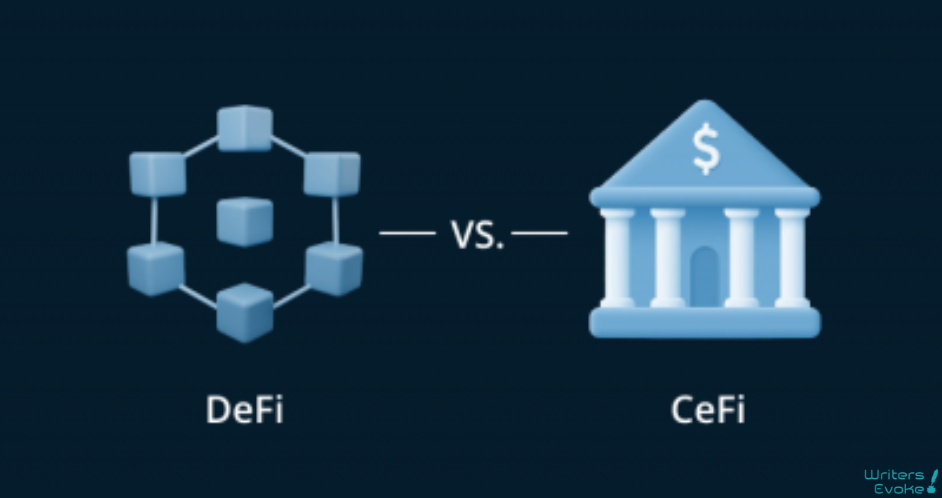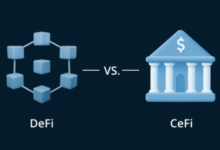Difference Between DeFi vs CeFi

Index Of The Blog
Difference Between DeFi vs CeFi
The world of finance has been revolutionized by the advent of blockchain technology, with the emergence of two distinct models of financial systems – DeFi and CeFi. While both DeFi and CeFi offer users access to a range of financial services and products, there are several key differences between the two models that are worth exploring.
What is DeFi
DeFi (Decentralized Finance) refers to a new model of financial system built on a decentralized, blockchain-based network that enables users to access financial services and products without intermediaries such as banks or other traditional financial institutions.
Decentralized Finance platforms offer a range of financial services, including lending, borrowing, trading, insurance, and more, using smart contracts that automate the execution of transactions and eliminate the need for intermediaries.
DeFi has gained popularity in recent years as it provides users with greater transparency, accessibility, and control over their financial assets. Moreover, DeFi platforms offer users the ability to earn yields on their cryptocurrency holdings, which has attracted a growing number of users and investors to the ecosystem.
What is CeFi
CeFi (Centralized Finance) refers to the traditional financial system, where financial services are provided by centralized institutions such as banks, brokerage firms, and other financial intermediaries. In CeFi, financial institutions act as intermediaries and manage customer funds, with users typically having limited control over their assets.
Unlike DeFi, which relies on decentralized blockchain-based networks, CeFi platforms are centralized, with a central authority controlling the operations and management of the platform. CeFi platforms offer a range of financial services such as banking, trading, investment, and insurance services, with users accessing these services through centralized applications and platforms.
While CeFi offers convenience and familiarity to users, it also poses some risks such as a lack of transparency, higher fees, and limited access to financial services. CeFi platforms also require users to trust the central authority to manage their assets and transactions, which can be a source of concern for some users.
Difference between DeFi vs CeFi
DeFi and CeFi are two distinct models of financial systems, with several key differences:
1. Decentralization: The most significant difference between DeFi and CeFi is that DeFi is based on a decentralized blockchain network, while CeFi is centralized. DeFi platforms are built on blockchain technology, which allows for peer-to-peer transactions and eliminates the need for intermediaries. In contrast, CeFi platforms rely on a central authority to manage transactions and financial services.
2. Control: In DeFi, users have complete control over their assets, with no central authority or intermediaries involved in managing or controlling user funds. In CeFi, users typically have limited control over their assets, with financial institutions acting as intermediaries and managing customer funds.
3. Transparency: DeFi is more transparent than CeFi, with all transactions recorded on a public blockchain. Users can track and verify all transactions, ensuring that all operations are transparent and secure. In contrast, CeFi platforms are often less transparent, with users having to trust financial institutions to manage their assets and transactions.
4. Accessibility: DeFi is more accessible than CeFi, as it allows anyone with an internet connection to access financial services and products. In contrast, CeFi platforms often have strict eligibility criteria, making it challenging for some users to access financial services.
5. Fees: DeFi platforms typically have lower fees than CeFi platforms, as they eliminate the need for intermediaries and central authorities. CeFi platforms often charge higher fees due to the costs associated with managing and maintaining a centralized platform.
Overall, DeFi offers users greater control, transparency, and accessibility over their financial assets, while CeFi offers users convenience and familiarity with traditional financial services and institutions.


